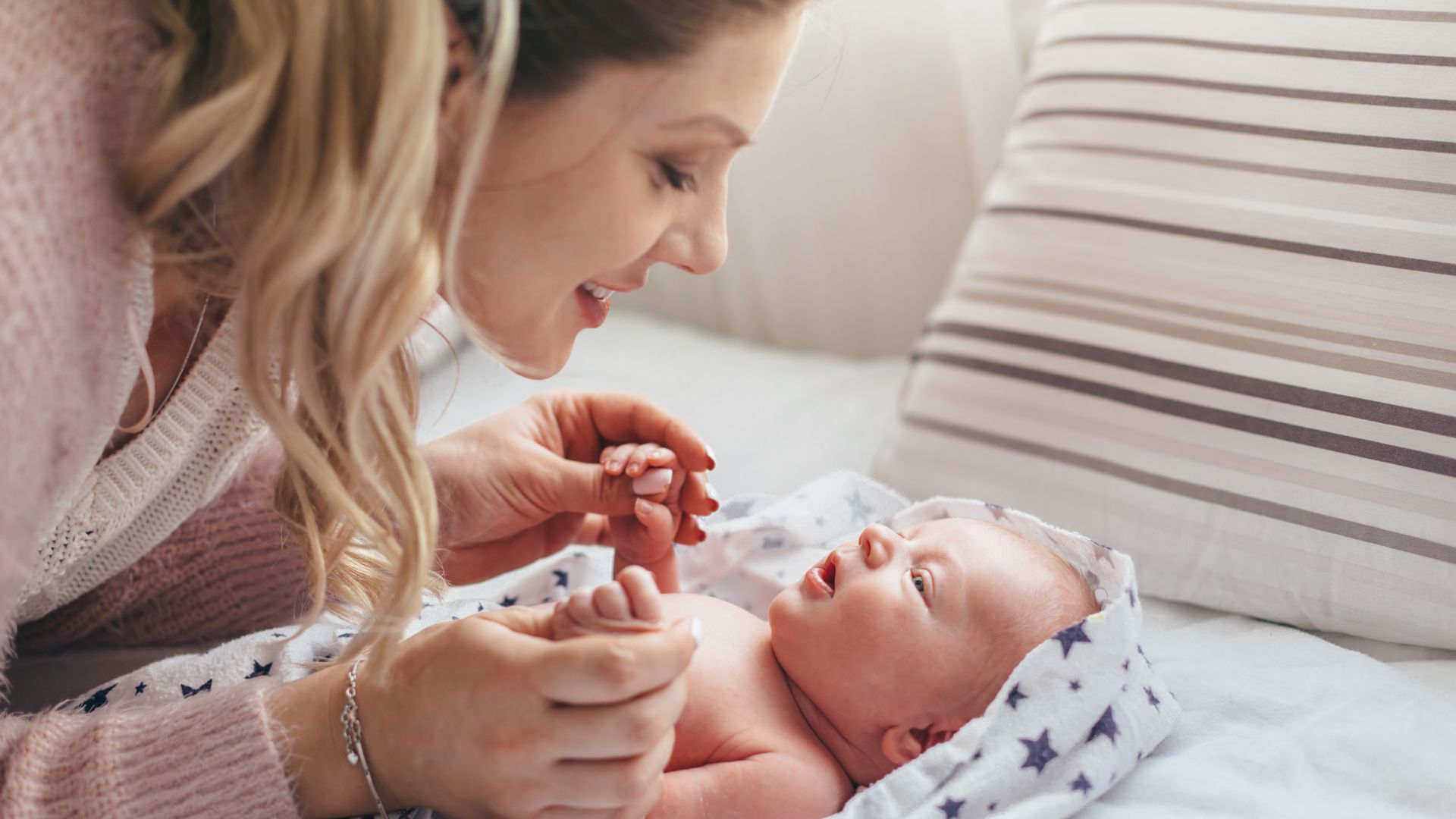Have you ever wondered “when do babies say mama” and how they learn to say it? This incredible journey is not only beautiful but also full of exciting milestones. In this post, we will explore the stages of language development that lead to babies saying “Mama” and tips and activities to encourage them along the way. Let’s dive into this fascinating world of language development and make unforgettable memories with our little ones!
Short Summary
- Journey to “Mama” is filled with language development and growth stages.
- Most babies say “Mama” between 9-12 months, but individual development varies.
- Positive reinforcement & engaging activities help encourage baby’s language skills leading to them saying meaningful words such as “Mama”!
- Short Summary
- The Journey to “Mama”: Stages of Language Development
- When Do Most Babies Say “Mama”?
- “Mama” vs. “Dada”: Which Comes First?
- Recognizing the Difference Between Babbling and Meaningful Words
- Encouraging Baby to Say “Mama”: Tips and Activities
- When Should You Be Concerned About Language Development?
- The Role of Primary Caregivers in Language Development
- Celebrating Baby’s First Words: Making Memories
- Summary
- Frequently Asked Questions
The Journey to “Mama”: Stages of Language Development
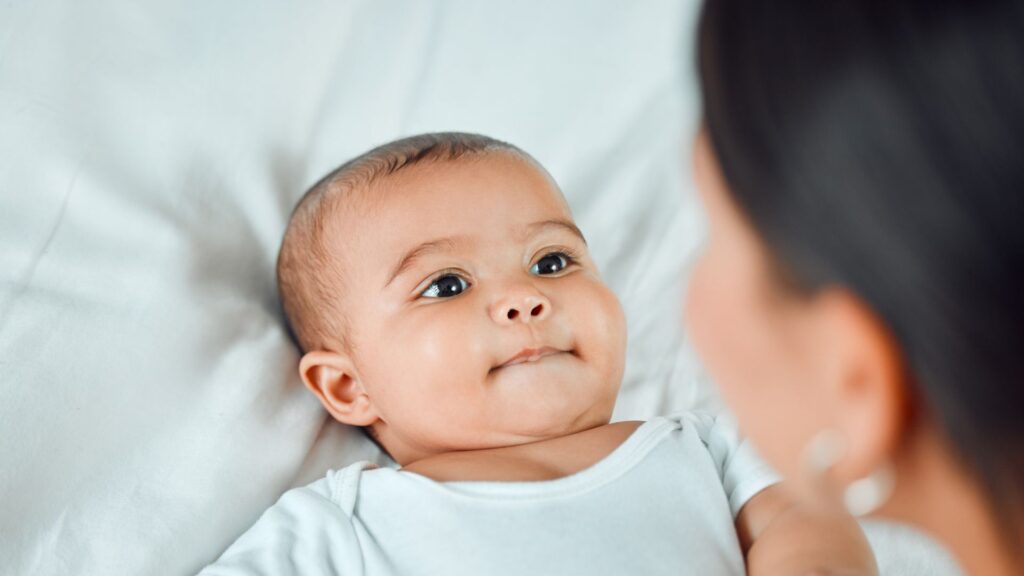
The journey to “Mama” involves various stages of language development, including cooing, babbling, and first words. Each stage plays a crucial role in helping babies learn and understand language, ultimately leading to the magical moment when they say “Mama” or “Dada” for the first time.
This moment is a milestone for both parents and babies, as it marks the beginning of a lifelong journey in a parent’s life.
Cooing Stage
The cooing stage is a wonderful prelinguistic stage of language development that starts at a young age, around 2 months. During this delightful phase, babies make the most adorable vowel-like sounds such as “ooh” and “aah”. These sounds are their first attempts at communication, and parents can’t help but feel overjoyed when they hear their baby coo.
Cooing is more than just cute noises; it is the first step toward actual words. By making these sounds, babies experiment with their vocal cords and mouth muscles, laying the foundation for future language development. So, when you hear your baby crying, know that they are taking their first steps towards saying “Mama.”
Babbling Stage
The next exciting stage in language development is babbling, which typically starts around 4-6 months. This is when babies begin to experiment with consonant-vowel combinations, creating delightful babbling sounds like “mama mama” or “dada dada”. Although they might not attach meaning to these sounds yet, they are learning the rhythm and patterns of speech.
Babbling is an important developmental milestone, as it shows that babies are making progress with their language skills. During this stage, babies might start saying “mama” or “dada” for the first time, although it may not be full of meaning until around 10 months. Nevertheless, hearing these sounds is a heartwarming experience for parents, as it signifies that their baby is on the path to saying “Mama” with purpose.
First Words Stage
The first-word stage, typically beginning around 9-12 months, is a monumental moment in a baby’s language development. This is when babies start expressing themselves with meaningful words like “Mama” or “Dada,” using these first words to refer to their primary caregiver. Reaching this speech milestone not only delights parents but also marks a significant milestone in a child’s life.
Around their first birthday, most babies can start using “Mama” and “Dada” accurately, recognizing the connection between these words and their parents. This is an exciting time for parents and babies, as it signifies that their little one is beginning to understand and use language to communicate.
When Do Most Babies Say “Mama”?
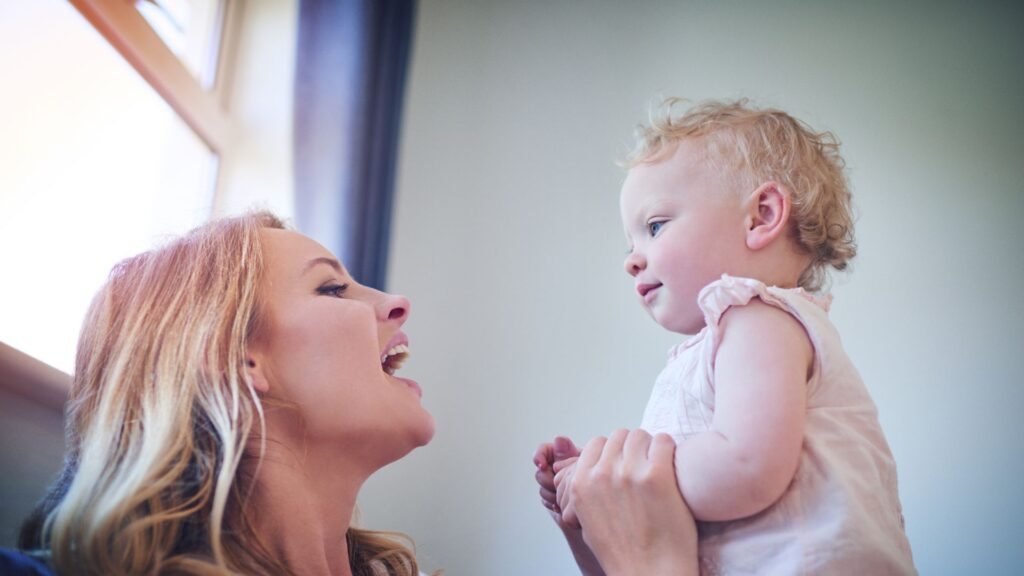
Most babies say “Mama” between 9-12 months, but individual development varies. It’s important to remember that every baby is unique, and they will reach language milestones at their own pace. Some babies might start saying “Mama” as early as six months, while others might take a bit longer.
When you hear your baby say “Mama” for the first time, be sure to acknowledge and celebrate this incredible milestone. Respond with joy and excitement, and repeat the word back to them. This positive reinforcement will encourage your baby to continue using their newfound language skills.
“Mama” vs. “Dada”: Which Comes First?
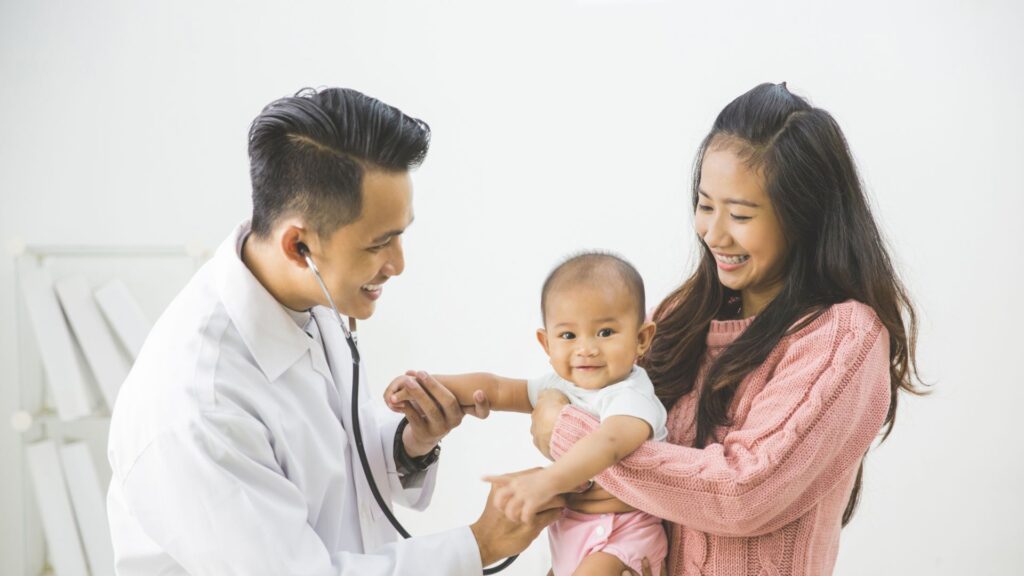
There is no fixed trend on whether babies say “Mama” or “Dada” first, as it depends on individual preferences and exposure. Some babies might be more inclined to say “Mama” because they spend more time with their mother, while others might say “Dada” if their father is their primary caregiver. Observing your baby closely and providing consistent exposure to both words is key.
Regardless of which word comes first, it’s essential to celebrate and encourage your baby’s language development. Hearing their parents’ excitement and praise will motivate them to continue practicing and refining their language skills.
Recognizing the Difference Between Babbling and Meaningful Words
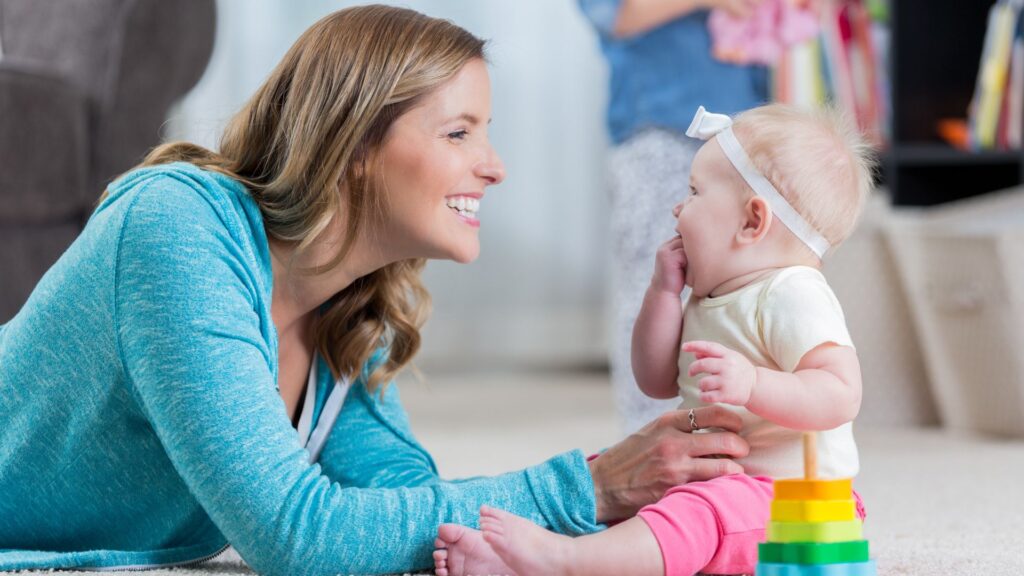
Understanding the difference between babbling and meaningful words is crucial for parents to recognize when their baby truly says “Mama.” While babbling is essential to language development, it is not yet attached to any specific meaning. To discern whether your baby is saying something meaningful, consider factors such as context, consistency, and age.
By paying close attention to these factors, parents can better identify when their baby says “Mama” with intent and meaning. Celebrating and reinforcing these meaningful moments will encourage your baby to continue developing their language skills.
Encouraging Baby to Say “Mama”: Tips and Activities
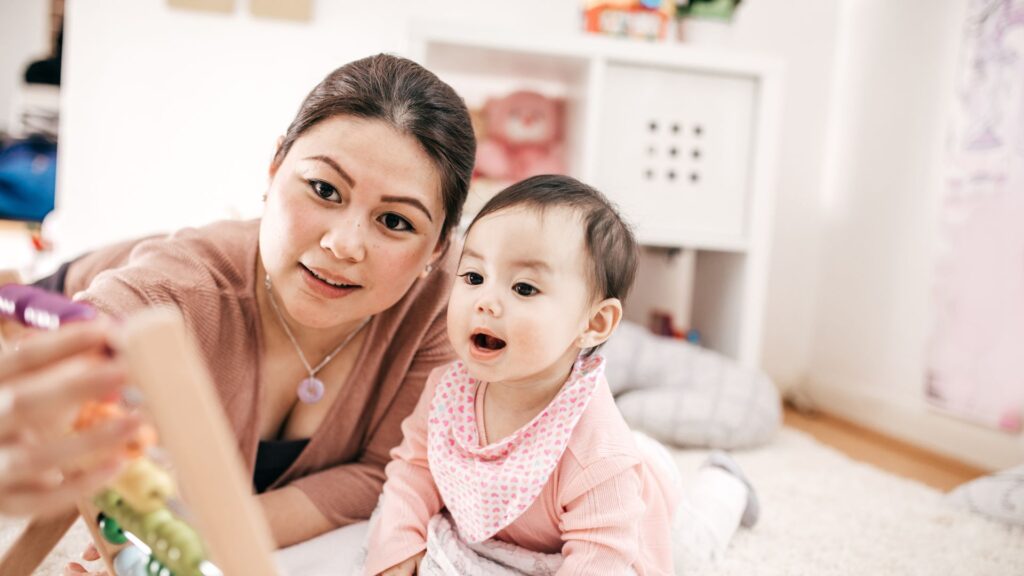
Helping your baby say “Mama” is a rewarding and enjoyable experience. By engaging in activities that support language development, such as talking often, playing language games, and using repetition and reinforcement, you can encourage your little one to say “Mama” in no time.
Talking often to your baby is a great way to help them learn language. You can talk about it.
Talk to Your Baby Often
Talking to your baby often is crucial for their language development and understanding. Engaging in conversations, narrating your day-to-day activities, reading stories, and singing songs provides them with a rich linguistic environment that fosters learning and growth. Additionally, paying attention to your baby’s body language can help you better understand their needs and emotions. Consulting a speech therapist might be beneficial if you have concerns about your child’s progress.
When talking to your baby, use baby talk with clear and simple language, making sure to emphasize words like “Mama” and “Dada.” This will help your baby associate these words with their respective caregivers and increase the likelihood of them saying mama and dada with intent and meaning.
Play Language Games
Playing language games is a fun and interactive way to encourage babies to say “Mama.” Games like peek-a-boo, singing songs, and playing with toys that make sounds entertain your little one and help them develop their language skills.
Engaging in these activities regularly creates an atmosphere for language use and allows your baby to practice the language skills they have gained. As they become more comfortable with words and sounds, they will be more likely to say “Mama” and other meaningful words.
Use Repetition and Reinforcement
Repetition and reinforcement play a vital role in helping babies understand words and associate them with their meanings. By consistently exposing your baby to words like “Mama” and “Dada,” you help them learn and remember these terms more easily.
In addition to repetition, providing positive reinforcement when your baby says “Mama” will encourage them to continue using their newfound language skills. Celebrate their achievements and watch as their language development blossoms.
When Should You Be Concerned About Language Development?
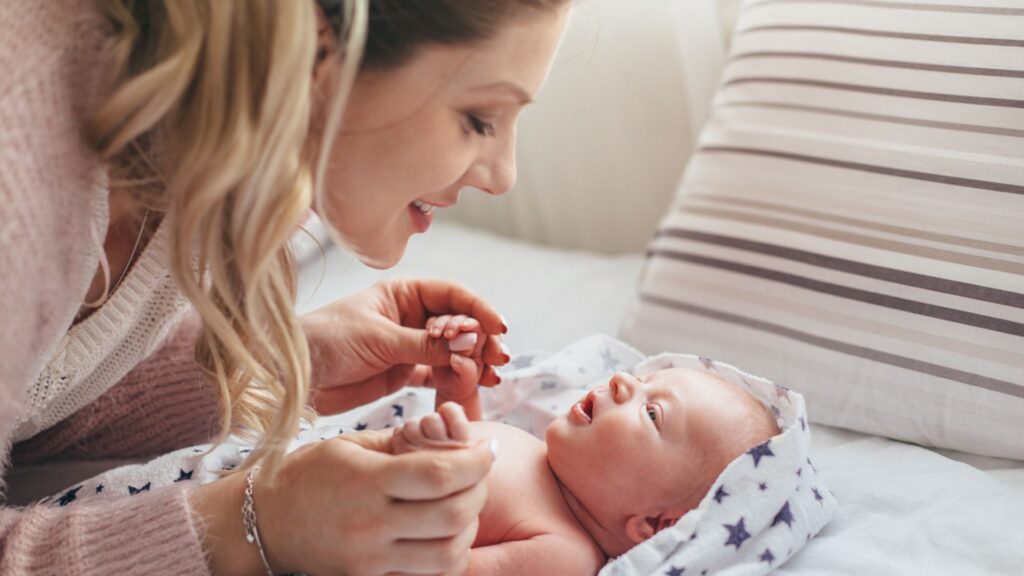
Parents should be concerned about language development if milestones are not met by 12-18 months or if there are other developmental delays. While every child develops at their own pace, it’s essential to monitor their progress and consult with a healthcare professional if you notice any concerns.
If your baby isn’t saying “Mama” or “Dada” by their first birthday or isn’t meeting other language milestones, it’s crucial to discuss these concerns with your child’s doctor. They can provide guidance and support to help your baby reach their full language potential.
The Role of Primary Caregivers in Language Development
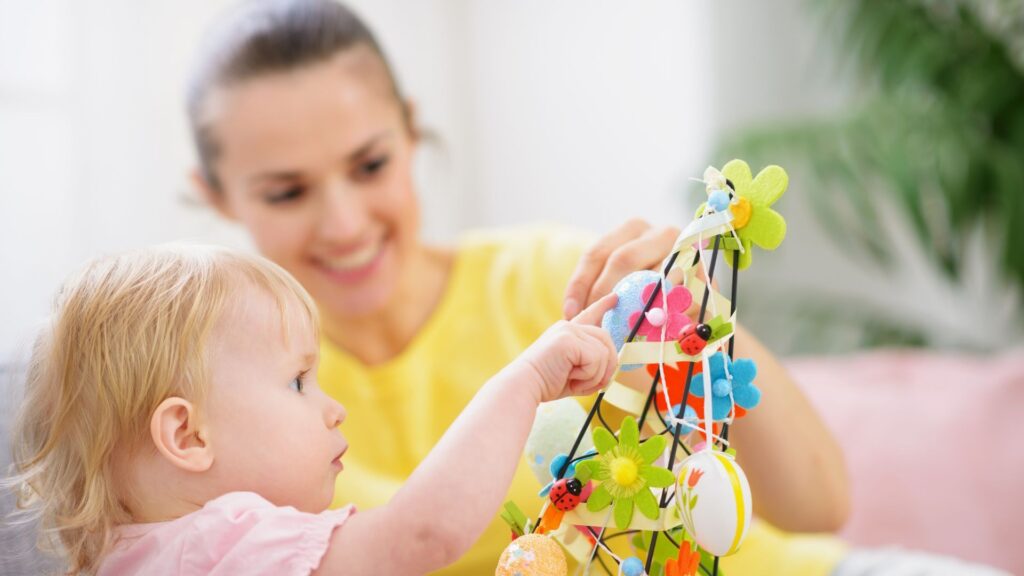
Primary caregivers play a crucial role in language development by consistently exposing words and sounds. You create a nurturing environment that fosters learning and growth by engaging in conversations, singing, reading, and listening to your baby.
In addition to providing a rich linguistic environment, caregiver responsiveness is highly beneficial for language development. By responding to your baby’s attempts at communication, you encourage their pragmatic development and strengthen their language skills.
Celebrating Baby’s First Words: Making Memories
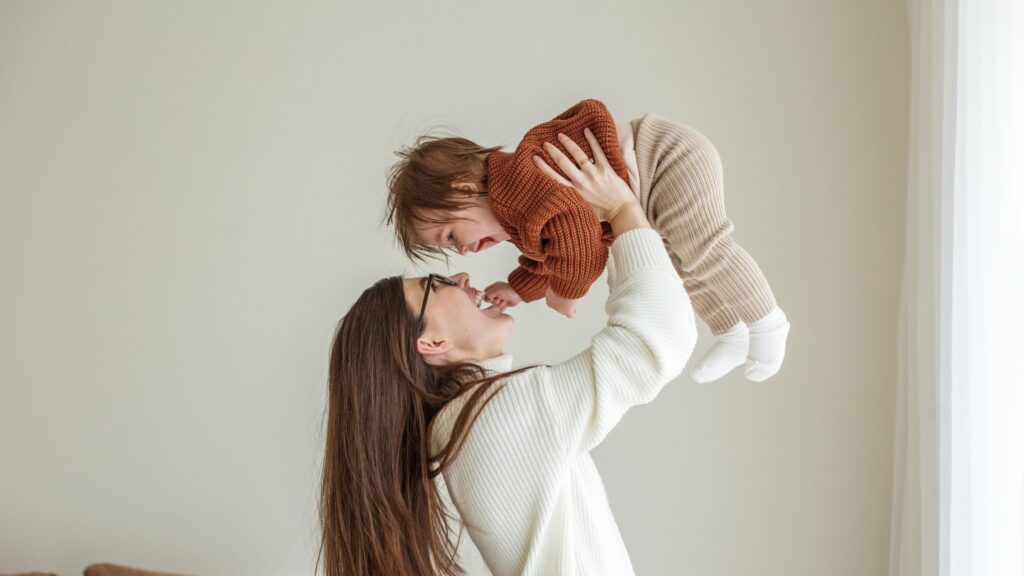
When your baby says “Mama” for the first time, it’s a moment you’ll cherish forever. Celebrating this milestone not only creates lasting memories but also encourages further language development. Capture these special moments by writing down your baby’s first words, taking photos or videos, and sharing them with loved ones.
As your baby’s language skills grow, these memories will serve as a heartwarming reminder of their incredible journey.
Summary
In conclusion, the journey to Mama is a fascinating and heartwarming experience full of exciting milestones. By understanding the stages of language development, recognizing the difference between babbling and meaningful words, and engaging in activities that support language growth, you can help your baby say “Mama” and create lasting memories. Cherish each step of this incredible journey, and watch as your little one blossoms into a confident and expressive communicator.
Frequently Asked Questions
Can a baby say mama at 6 months?
At six months, babies are just starting to develop their communication skills. While it’s possible that a baby can say mama at this age, it is more likely that they will begin to use the syllable in their babbling and repeat it often by the time they are seven or eight months old.
By their first birthday, some babies may even construct mini sentences with the word “mama”!
Can a baby say mama at 5 months?
Though it’s not common for a baby to say “mama” at 5 months old, you may still be able to hear those first words from your little one before 12 months. With plenty of patience and encouragement, your baby could be talking in no time!
Babies learn to talk through imitation and repetition. Talk to your baby often and use simple words and phrases. Point out objects and name them. Sing songs and read stories. These activities will help your baby learn language and develop communication skills.
What if my 9-month-old doesn’t say mama?
Optimistically, it is completely normal for babies to reach milestones like saying mama at different times. If your 9-month-old hasn’t said mama yet, there is no need to worry – just be patient and supportive as they learn more about their world! Have fun with them, provide a stimulating environment, and enjoy the process!
Try not to worry if your 9-month-old isn’t saying “mama” yet; each child develops at their own pace, and some take longer to learn new words. Just keep providing a loving and supportive environment, have patience, and soon enough, your little one will start saying mama and lots of other words too!
How do I know if my baby is saying mama?
It’s exciting to think that your baby could be saying “mama” soon! At around six months old, babies begin babbling and making sounds with their mouths, which may include the m sound. Even if you don’t hear them say “mama” specifically, it still means they’re learning and growing as they interact with you!
So keep an eye out for those little sounds – you might be surprised when you hear it!
When do babies start talking?
Babies usually start talking at around 12 to 18 months of age, with babbling beginning between 4 and 7 months. As your baby learns to communicate, they’ll start to recognize words and attempt to repeat them back. With patience and lots of practice, you’ll soon be able to understand and enjoy conversations with your little one!
Most babies start babbling around 4 months old, and by 12 to 18 months, they will be saying their first recognizable words and having conversations with their loved ones. Even before that, babies have a whole range of ways to express their thoughts and feelings.
